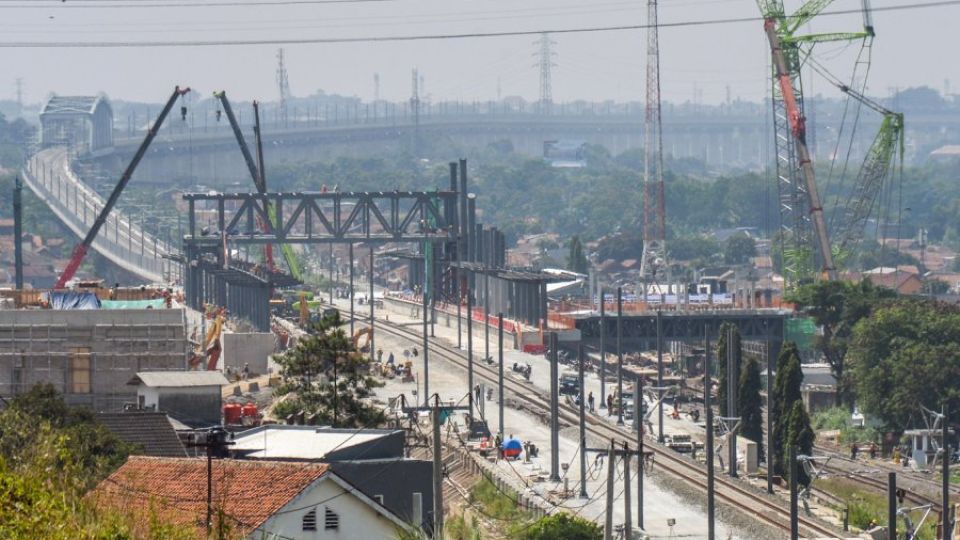September 13, 2023
JAKARTA – Japan appears less than keen to join a project to extend the Jakarta-Bandung high-speed rail (HSR) link to Surabaya, East Java, citing concerns about technical compatibility and possible damage to the “brand” of Japan.
Speaking to The Jakarta Post on Thursday, Japan’s cabinet secretary for public affairs, Noriuki Shitaka, stated that mixing technologies from different countries would complicate the project.
“If you mix two technologies, I don’t know whether it will work well or not. For example, we cannot be responsible for Chinese high-speed rail projects, especially if there is a problem. If we work together, there is such a possibility,” said Shitaka.
Shitaka attributed this to the fact that Japan had no knowledge of either the train’s composition or the rail system and therefore would be careful, lest getting involved damaged “the Japan brand”.
The main phase of the US$7.3 billion project to connect Jakarta with the West Java capital of Bandung, construction work on which began in January 2016, is nearing completion.
The initial plan was only to connect those two cities, before President Joko “Jokowi” Widodo ordered to extend it to Surabaya in 2020, the idea being that a longer distance would make the infrastructure project that has experienced repeated budget overruns “more economical”.
Jokowi’s plan was to get Japan on board in the hope that that might speed up the ambitious project. The Jakarta-Bandung HSR is a joint venture involving Chinese and Indonesian entities, but not Japan.
While both China and Japan have a lot of experience in building high-speed railways, it is the first such project for Indonesia.
The launch of operations for the project has been pushed back several times. It is now scheduled for Oct. 1, far behind the original plan to have trains up and running in 2019.
The railway project will serve four main stations: Halim in Jakarta, Karawang in West Java, as well as Walini and Tegaluar in Bandung regency. The trains will travel at up to 350 kilometers per hour, cutting the travel time between Jakarta and Bandung to 45 minutes from the current journey of almost three hours.
An extension of the line was initially included in the list of national strategic projects (PSN) to be prioritized until 2024, the year Jokowi steps down as president.
However, after reviewing the project’s feasibility and time constraints and taking current conditions into account, Jakarta took it off the PSN list in July, creating further uncertainty about when it might be given the green light.
The government discussed the planned extension with Beijing after Chinese Premier Li Qiang rode on the train with Indonesian Coordinating Maritime Affairs and Investment Minister Luhut Pandjaitan for a trial run last week.
“[Li] was very satisfied. He said the quality was on par with the ones in China,” Luhut said as quoted by Reuters.
Explaining Tokyo’s reluctance, Shitaka said Japan wished to support the plan because “Indonesia is such an important friend for Japan” but the collaboration would have to involve private companies to ensure its commercial viability.


